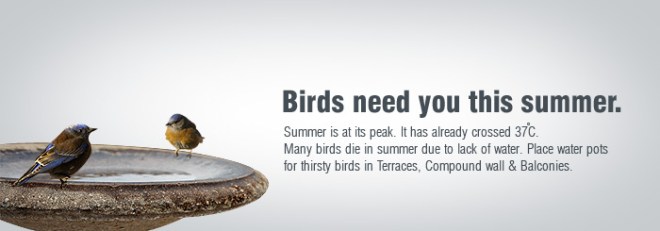
Summer is well and truly here and Its already touching 45 degrees Celsius in most North Indian cities… Its going to be equally harsh to the animals around us. Kindly do your tiny bit by keeping a bowl of fresh water out side your balcony or garden…place some pebbles/stones in the pot for the insects to perch on and sip water (even flies and insects feel thirsty), else most of them drown as they try sipping water from the edges of the bowl!
- Put bowls filled with cold water in your verandahs, neighbourhood parks for the squirrels, birds and other small insects and animals to feed on. Remember to place some pebbles inside the bowl for the insects and the butterflies to sit on and drink water else they will drown in the big bowl.
- Put a bowl of grains for the birds to feed on.
- Coordinate with your nearest animal hospital to get your neighbourhood street dogs, especially females sterilized. Get all of them vaccinated against Rabies.
- Segregate your kitchen leftovers-food, vegetable peels, dough, fruit peels and seeds in a separate basket in your kitchen and feed them daily to the cows in your neighbourhood. Do not place food leftovers in plastic bags as cows often ingest polythene bags containing food, which chokes their stomachs and they die painfully in due course of time. For more, click here
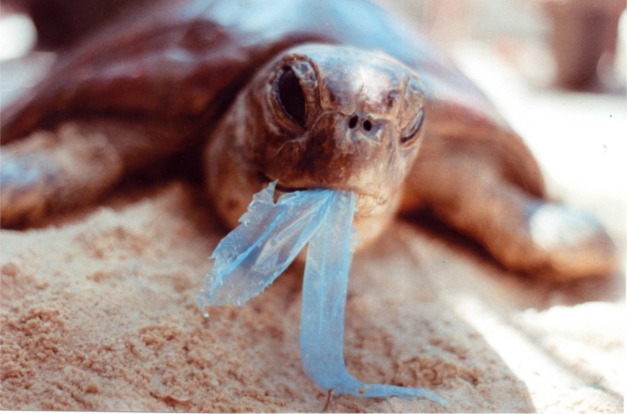
Image Courtesy: http://www.zerowastemann.org/images/plasticbag.jpg
- Say no to the Polythene bag for they are non-biodegradable i.e. they can’t be broken down in the soil by microorganisms/by nature into organic/harmless recyclable components as a result the polybag that you may use today will stay on this planet forever!
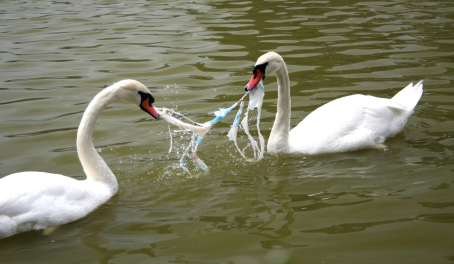
Image Courtesy: http://www.rengraphicdesign.com/blog/images/swans_bag.jpg
- It will choke drains, degrade soils and prevent grass or trees from growing therein. If burnt, they release dioxin, a cancer causing gas. Polybags also make their way into oceans and seas where they are ingested by marine animals like turtles mistaking them to be food/jellyfishes, they are also ingested by cows and other animals that forage on our bin-waste. So, indirectly we may end up taking many lives by using the polybags! Think over it.
- Take cloth bags along with you for shopping for vegetables or the market. Buy a few baskets to collect vegetables from your street vegetable vendor and bring them home in it rather than asking him to give you each vegetable in a separate polybag.
- Please minimize the use of paper. Avoid printing out e-mails unless it’s necessary.
- Give even the tiniest bit of paper that you use to the raddiwaala/kabaadiwaala. Even your bus tickets & newspaper pamphlets! Don’t let anything go waste.
- Remember the 4Rs: Refuse. Reduce. Recycle. Reuse.
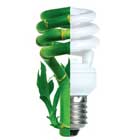
Image Courtesy: http://www.ecojoes.com
- Use CFLs instead of incandescent bulbs. They may be a bit expensive but they save on your electricity bills and give out as much brightness as a bulb.
Read on for more GREEN TIPS:
Save Electricity by:
- Please turn of the monitors on your PC when you leave the office for the day, or leave for some break (especially during weekends).
- Switch the office lighting to LEDs (Light Emitting Diode) based Lamps or CFLs (Comapct Fluorescent Lamps), they are low on energy consumption and as bright as the ordinary lamps we use.
- When your meeting in the conference room is finished, take the initiative to turn off the lights in the conference room as you leave. If you have an enclosed office, do the same.
- Turn off all task lighting at your desk when leaving for lunch or at the end of the day.
- Turn off your computer and your power strip and eliminate those “vampire” devices sucking a little energy when off—your monitor, your cell phone charger . . .
- Replace tinted window panes with transparent ones wherever possible so that we use sunlight efficiently instead of turning on electric lights.
- Install compulsory power settings for all the office monitors.
Save Paper, reduce e-waste by:
- Make/Set double-sided prints as the default print style on your Office Printer. This will help in saving lots of paper and also in reducing wastage.
- Minimize printing and copying! What did they make the computer and e-mails for, if you keep on taking prints of everything all the time?
- Use the trusted USB drive/Pen Drive to transfer data electronically from one computer system to the other, don’t waste CDs to do these inter-computer transfers…
- Encourage your institution to recycle their waste paper. You can also associate with us at JAAGRUTI Waste Paper Recycling Services (www.we-recycle.org)
Reduce. Reuse. Recycle the Office discard:
- Corporate offices should have two bins – one for the stuff that can be recycled (like paper, refill pens, clips, pins, used envelopes, cardboard boxes, files, aluminium cans, glass bottles etc.) and other bin for non-recyclable goods
- Pantries should have disposable, bio-degradable wooden stirrers instead of plastic ones.
- Don’t throw away your Printer Cartridges, get them refilled. It will also save your office some money and earn you some brownie points :)
While you eat or drink at work:
- Bring a coffee mug from home and use it rather than paper, Styrofoam or plastic cups.
- Bring silverware or a plate and bowl to reduce the need for disposable cutlery and paper plates in the breakrooms.
- Provide some stainless steel spoons to be used within the pantry. Those who wish to use plastic straws may continue to do so, but the consumption of plastic will reduce.
- Take the required quantity of food during the first serving, and don’t hesitate to have a second helping.
- Avoid spilling food while serving and creating a mess. This will also ensure the plastic covering stays clean and the caterers don’t need to change it repeatedly.
- Only fill as much water needed for the day from the water cooler as you need in one go and drink it all before it turns warm. Doing so, will prevent the water (in your filled bottle) from turning warm (as it lies unused/undrinkably warm) and getting you to throw it before refilling your bottle/cup again, the next time you feel thirsty.
In the Toilet:
- Avoid using the toilet rolls and tissue paper. Get your Office management to install jet-sprayers instead on all the flushes to prevent your hands from reaching out for the toilet rolls.
- Install the half-flush system on your flush, it will help save half the quantity of water that normally gets used every single time you flush your waste down the drain…
- Avoid wasting water while you cleanse up your face as you try to unwind after completing an arduous assignment at work. Keep both, your emotions and the tap flow under control!
MORE Green Tips
- Only print if it is absolutely necessary.
- If you do print, use both sides of the paper.
- Get your office to turn the air-conditioning up by 1 degree this month.
- Next month ask them to increase it by another degree. Each degree rise in AC temperature can save up to 10% of a building’s energy bill and consumption.
- Call for an official energy audit to be done on your office building.
- If you are going to use a car, buy a small car which is practical to get around and has higher fuel efficiency.
- Check the tyre pressure the first of every month to ensure it is still sound to save on petrol needs.
- Think about living as close to your work as possible, this reduces your commute and drastically helps reduce your travel emissions.
- Shame others on the public transport that litter or spit by asking them to respect the facilities so they are more pleasant for everyone to use.
- Skip unnecessary business trips and do telephone/video conferencing instead.
- Plan ahead and combine all your errands into one trip to save on emissions.
- Carry your own coffee mugs to office. Avoid using disposable cups.
- Develop an awareness chart in your office or home where everyone can see a list of ways they can reduce their carbon footprint.
- If you see anyone littering or wasting water or food, sit them down and explain to them how this adversely affects our climate.
- Carpool to office with friends and colleagues who live around you.
- Always buy ice cream in a cone so as not to add to the garbage created from the spoon and cup.
- Create the habit of taking only what you need in every situation.
- Try and buy foods and goods that were produced locally.
- Take nature trips to natural parks nearby, but remember to leave no traces and respect the environment.
- Never release balloons outside, and avoid using them for outdoor events.
- Create innovative decor and cards from recycled materials for weddings and special occasions instead of high-energy consuming materials.
- Ask for birthday presents to be eco-friendly and wrapped in old newspaper.
- Use LED lighting with light paper decoration around your house instead of bright burning lights.
- For the next festival you celebrate, avoid adding emissions to the air with firecrackers.
- Wash dishes in a tub instead of under a running tap.
- Keep your water heater on for 5-7 minutes only (and only when you really need warm water) as heating water takes a significant amount of energy.
- Take short showers!
- Continue to take a bucket shower if it is your habit.
- Study your water bill and set goals to reduce your water consumption by 5% more every month for the next 6 months. See how low you can go.
- If there is a garden near your building, ask that the groundkeeper only water during the early morning or evening to avoid extra water needed to compensate evaporation.
- Leave grass clippings on top of a garden to act as a natural fertilizer.
- Fix a water leak as soon as you see one.
- Steam rather than boil vegetables to save 25% of water needed.
- On cool evenings leave your windows open instead of switching on the AC.
- Turn off lights and fans when you leave a room.
- Completely shut down your TV and computer from the power point when you are not using it.
- Read through your energy bill and find out the amount of electricity you are consuming. Then make a goal to reduce your consumption by 5% next month, 5% the following month, and see how much lower you can go.
- When painting your home, use natural Indian paints and stick to lighter colors so that they compliment natural light coming in.
- Implement solar thermal heating in your building and you will actually start saving money very quickly.
- Ask your building society to change the building and hall lights to LEDs and CFLs.
- CFLs will save up to 66% in energy consumption. LEDs require even less energy!
- Use task lighting; instead of brightly lighting an entire room, focus the light where you need it.
- Look into rainwater harvesting for your buildings water resource needs.
- Invest in renewable energy consumption, their market is growing at a time when many markets are unstable, and you are also helping to develop their scale and efficiency.
- Promote renewables such as solar, wind, and hydro as solutions to our climate problem.
- Do not ask for a plastic bag from a shopkeeper if the items are few enough to carry by hand.
- Do not accept free promotional materials that are being handed out with lots of packaging.
- If you have a choice, look for items sold in glass jars or easily reusable materials rather than plastic.
- Eat more raw vegetables which are healthier for you as well as saves on cooking energy.
- Replace chemical cleaners with good old fashioned baking soda and vinegar and go for biodegradable dishwashing soap.
- Pack lunches in reusable lunch bags and washable containers instead of plastic wrap and bags.
- The plastic bags you already have at home should be washed and reused.
- Always carry a cloth bag with you to bring home any purchases.
- Reuse the water used to wash veggies and fruits for watering your plants.
- Keep and reuse all your rubber bands, paper clips, boxes and packaging material.
- Garments such as socks and undergarments do not need to be ironed, so save the energy.
- Check to make sure your refrigerator door seals when closes so that you don’t consume extra energy to keep things cool.
- Heat the water in a kettle not in open pot.
- Use smaller pots for cooking small portions.
- If you need two cups water for tea fill your kettle with only two cups. A lot of energy will be wasted heating up a full kettle full of water.
- Instead of boiling water for drinking, buy a filter on the market that uses little or no energy to purify your water.
- Soak lentils and rice for several hours before cooking to reduce the time and gas needed to cook it.
- Regularly cleaning the condenser coils found in the back or bottom of the refrigerator will maximize its efficiency.
- Keep the refrigerator away from heating appliances (ovens), windows and heating ducts.
- Allow hot food to cool off before putting it in the refrigerator.
- Do not put uncovered liquids in the refrigerator. The liquids give off vapours that add to the compressor workload.
- Outdoor lightblulbs can change to LEDs, which require even less energy than CFLs.
- Keep plants in your home to help moderate the temperature, air quality, and keep you naturally feeling cool.
- Next time you want to buy something you don’t need, wait thirty days and then make the decision to avoid impulse buys.
- Plant a tree that is indigenous to the area where you plant it.
- Replace paper napkins in your home with cloth napkins.
- If you use toilet paper, stick to the bleach free ones that are made from recycled sources.
- Pass old clothes, books, shoes, electronics, and other household items to schools, orphanages and shelters in need.
- Send extra hangers to your local dry cleaners.
- Donate old eyeglasses to a nearby optometrist clinic.
- When dealing with hazardous waste (chemicals, paints, batteries), make sure you find out the proper place to dispose of them instead of adding them to the regular trash.
- If your clothes are clean, do not get them washed after wearing them just once.
- Dress warmly when it is cold instead of using a heating device.
- At the next family gathering, ask for ten minutes to give a presentation about global warming and what needs to be done to mitigate it. Use the statistics and tips you have learned in this diary to give them ways to get involved.
- Support environmental organizations with your actions and funding.
- Check the internet for a Carbon Calculator website so you are conscious of your carbon footprint.
- Keep the window shades open to allow natural light so you can turn off some of the lights.
- Walk wherever possible, and find stores near your home to get the things you need.
- When choosing an item, think about the amount of energy used to make it before making the purchasing decision.


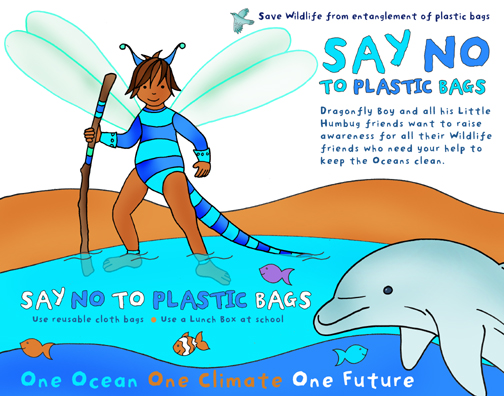
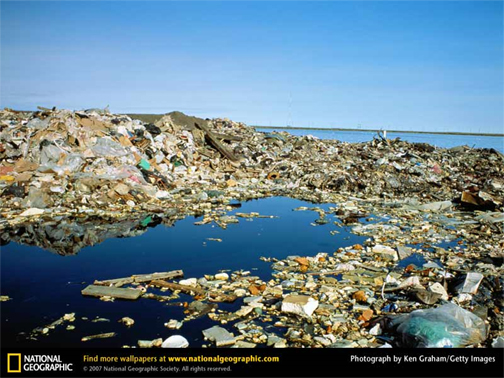
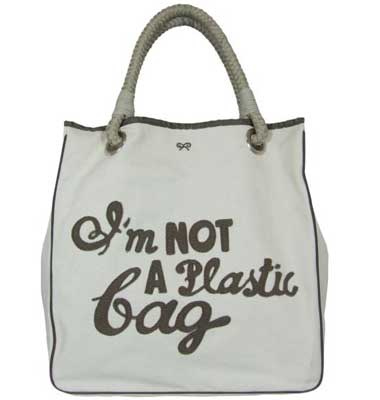
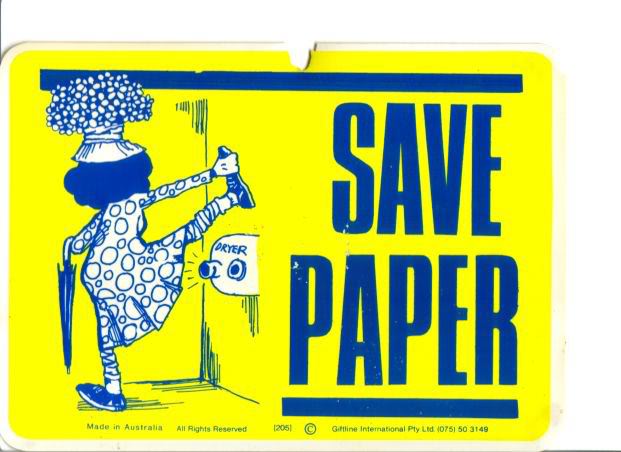
great effort
LikeLike
Thanks!
LikeLike
Great ideas!! thanks. i always keep a pot i buy locally from the potter, filled with water. at first the birds do not come but eventually, they do. I also put outside any fruit/veggie peels, bread crumbs, rice and roti. my birds are happy. i am strictly against th use of plastics. having lived abroad for 14 years, i have never used plastic in all these years. its nice to know that now even in india, there is this wave spreading message of good deeds and poepl are wilingly following it. well done to all the good samaritans. i wish people like us multiply each day so we can correct the wrongs!!!
LikeLike
nice
LikeLike
Thanks…. i am spreading this to my all friends group as well neighbors.
LikeLike
Very good effort by Jaagruti to save environment
LikeLike
We CAN all do our bit.
LikeLike
It is a very inspiring and encouraging way in which jaagruti is trying to make a difference…
Please step forward to helping wildlife like bears and monkeys, suffering cruelty on Delhi roads….rescue them, give them a new life!
A message to all the readers:
Always remember that,
Greatest of the criminals are not those who commit a crime but those who see it being done and do nothing to stop it.
TAKE ACTION !
LikeLike
Thank you for your kind words..ww are still not a rescue centre and are doing our best to act as an information service. Thus, for any wild animal rescue you wish to get done for animals like monkeys please contact wildlife Rescue agencies like Wildlife SOS in Delhi
LikeLike
i am a dog lover and sometimes i also do the charity of our street dogs if i can manage.any ways thanks for the handy medecines of first aid for dogs .do you have any vertinary books which i can read
LikeLike
Thanks. No, we don’t have any books yet. Do consider doing a fundraiser for us at JAAGRUTI as well. We want to expand our On-site First Aid Service for Street Animals in Delhi
LikeLike